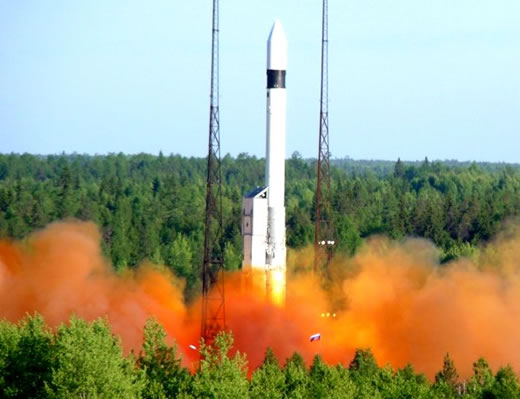
The Russian military has lost contact with a satellite launched from the Plesetsk spaceport earlier today. According to state-owned Khrunichev, the satellite’s launcher manufacturer, the satellite, designated the GEO-IK-2 Reshetnev is a designed for geodetic (3D earth mapping) studies. Several weeks later, the Russian defense ministry decided to abandon the satellite now circling earth in a wrong orbit.
The satellite was launched by a107 ton Rokot satellite launcher, based on the SS-18 intercontinental ballistic missile, augmented by Briz-KM upper stage, both manufactured by Khrunichev. Following a successful launch the satellite apparently entered a different orbit than the one planned for the mission, as GEO-IK-2 failed to appear in the footprint of the ground control antennas, to establish radio contact. According to Russian sources ground control is trying to determine the satellite’s orbit in an attempt to establish contact with the lost spacecraft.

The apparent mishap follows a failed launch of three GLONASS-M satellites in December. Russia’s space agency Roscosmos plans to launch another stack of three Glonass-M satellites on board a Proton heavy carrier rocket later this year to complete the orbiting Glonass grouping. Russia has switched on two reserve Glonass-M satellites in orbit to compensate for the ones that were lost. Roscosmos will also launch a Glonass-K satellite in Feb.-March to bring the current number of operational satellites in orbit to 23. The complete constellation is designed to operate maintain 24 operational and 2-3 reserve satellites for continuous global coverage of thr Glonass network.
















